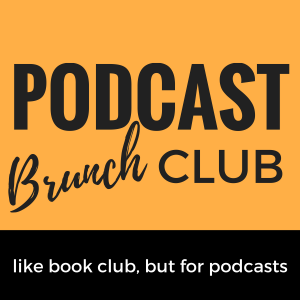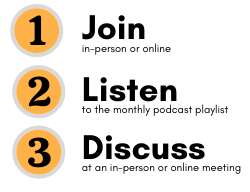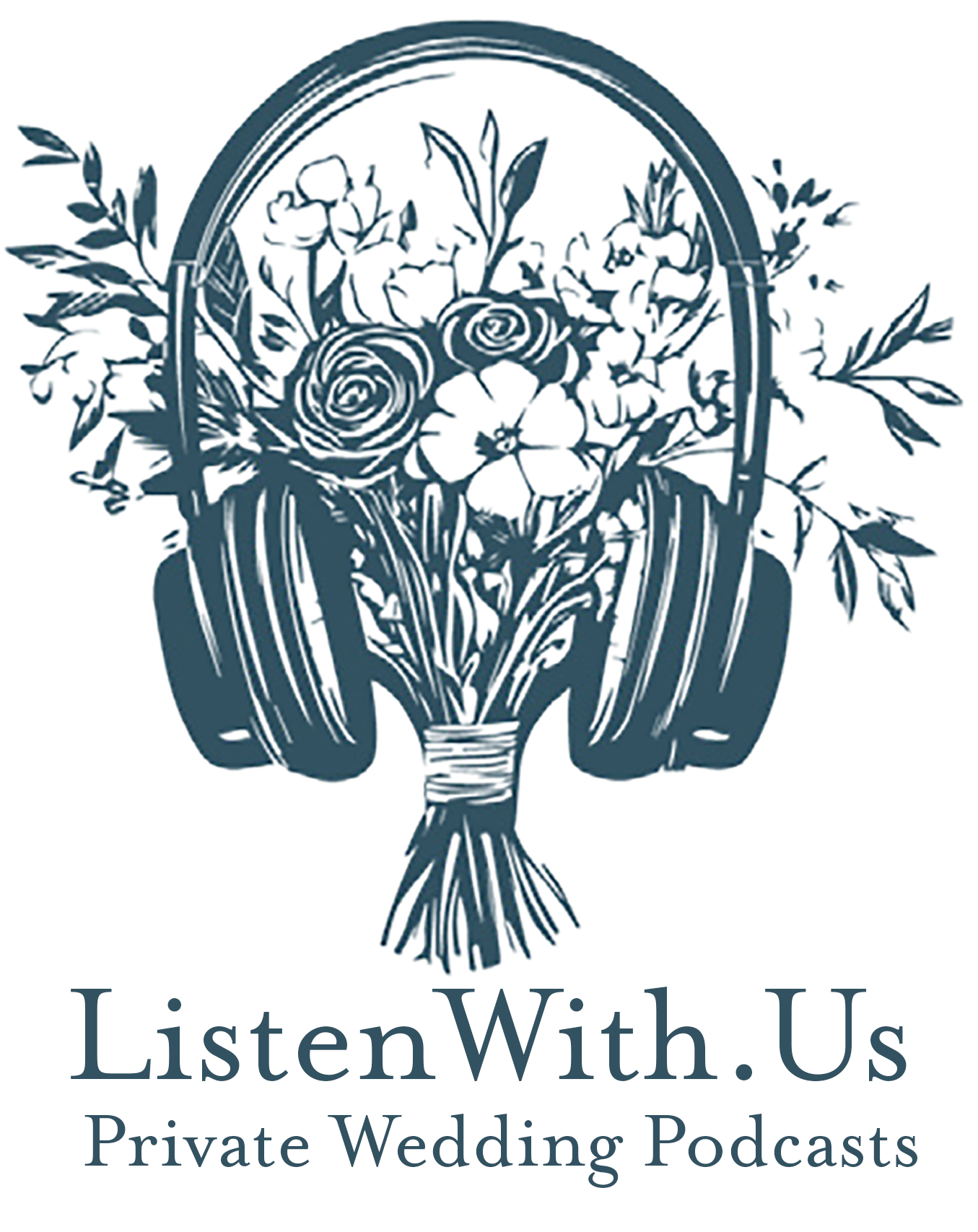Stereotypes in Pop Culture: Podcast Playlist
This podcast playlist on “Representations & Stereotypes in Pop Culture” was curated by Morgan Jaffe, host of the Burst Your Bubble podcast, an independent podcast that focuses on racism, sexism, homophobia, and other -isms and -phobias in pop culture. Morgan is also the co-leader of the PBC-Boston chapter.
I’m really interested and intrigued by media representations and stereotypes in pop culture. Every day we interact with screens, from computers and television to movies and our phones – and the images that we see are incredibly powerful. They can shape how we understand and view a group of people and even our understanding of ourselves. And while images in pop culture can introduce new people from different backgrounds into our lives, are we thinking at all about the representations and stereotypes pop culture is creating? For better or worse, whenever I consume media all I can think is what kinds of representations are in pop culture, and how do they play into stereotypes? Hopefully these episodes start a conversation and stick with you next time you’re watching, listening, and just in general interacting, with media and pop culture.
Podcast Playlist on Stereotypes in Pop Culture
*Note: You can always get the latest PBC playlist on the RadioPublic app
TED Radio Hour – Playing With Perceptions
(Apple Podcasts | Google Play // 50 minutes, November 2014)
In this episode the TED Radio Hour focuses on stereotypes, asking where do they come from? Why do stereotypes exist and is there any truth to them? And what are the consequences of stereotypes?
Code Switch – Changing Colors in Comics
(Apple Podcasts | Google Play // 27 minutes, April 2017)
Gene Demby talks to Ariell Johnson, Ronald Wimberly, and C. Spike Trotmanthree, three black people who are working to create more space for black readers, characters, and creators in the comics world.
Stuff Mom Never Told You – Transgender TV
(Apple Podcasts | Google Play // 38 minutes, June 2015)
Cristen Conger and Caroline Ervin talk with trans activist and writer Raquel Willis about trans characters, trans actors, and representations and portrayals on trans people on television.
The Mash-Up Americans – Alan Yang, Master of Lots
(Apple Podcasts | Google Play // 37 minutes, March 2016)
Amy S. Choi and Rebecca Lehrer talk with Alan Yang, co-creator and executive producer of Master of None, about the idea of the model minority, being a first generation American, and the lack of diverse characters in media.
PBC Podcast: Discussion with Morgan Jaffe about the “Stereotypes in Pop Culture” podcast listening list:
(Apple Podcasts| Google Play // 40 minutes, October 2017)
The PBC podcast brings part of the PBC conversation directly to your earbuds. This month, Adela (founder of Podcast Brunch Club) sits down with Morgan Jaffe (PBC-Boston chapter co-leader and host of the Burst Your Bubble podcast), to discuss the podcast playlist she curated for us on “Stereotypes in Pop Culture.”
Conversation Starters about Stereotypes in Pop Culture Playlist:
- In many of these episodes, hosts and guests would talk about a time when they felt represented in the media. Do you feel represented in the media? Why or or why not?
- Do you remember one of the first times you felt like you were represented in pop culture? Was it a positive or negative experience for you?
- In the Ted Radio Hour – Playing with Perceptions, psychologist Paul Bloom explains why he thinks prejudice is natural, rational, and even moral. Do you agree or disagree with him?
- Stuff Mom Never Told You quotes Janet Mock, who said “Often, the only time an ally or cisgender person will have interaction with a trans person in life will be through the television, will be through a magazine article, will be through an internet clip that goes viral.” This could be said about many races, religions, sexual orientations, or gender representations. Do you agree or disagree with this comment? What do you think people are learning from the media and pop culture?
- “Changing Colors in Comics” talks about how an executive at Marvel commented that “people didn’t want any more diversity” and that it was causing a sales slump. What are your initial reactions from that?
- In “Changing Colors in Comics” C. Spike Trotman talks about how companies believe that people of color, LGBTQ characters, and characters with disabilities are not relatable and niche markets. Do you agree or disagree?
- The Mash-Up Americans talk about how in the Master of None “the closer you get to the real details the more universal the story becomes.” Do you think a story can become universal – regardless of someone’s background? Why or why not? If so, then why do you think about the question above – that companies believe that people of color, LGBTQ characters, and characters with disabilities are not relatable and niche markets.
- Code Switch talks about how black comic characters were created by white men and Stuff Mom Never Told You talks about how trans characters can be portrayed through a cisgender lens – through a cisgender actor or writer. What do you think about characters being created or acted by people who are not a part of that group? Is it better to have someone create or portray a character without having their lived experiences than not to have that character exist at all?
- The Mash-Up Americans played a clip where Alan Yang said, “Thank you to all the straight white guys who dominated movies and TV so hard and for so long that stories about anyone else seem kind of fresh and original now.” What’s your reaction to that?
- In Ted Radio Hour – Playing with Perceptions, Maz Jobrani talk about how he thinks stereotypes exists because there is some truth to stereotypes. In his comedy he also used a lot of accents. Accents and dialects also came up in discussion with Sarah Jones and Jamila Lyiscott as well. How do you feel about how people sound being used for comedy and media representations? Does your reaction change based on who is doing the accent or dialect? Should it?
- “Changing Colors in Comics” says that the fastest growing comics readership right now is women aged 17-33. Does this surprise you? Do you feel that this group is represented in comics? Why or why not?
DJ RuggedAngel’s Music Playlist
Take your thinking cap off and put your dancing shoes on! Our very own DJ RuggedAngel put together this “Stereotypes in Pop Culture” music playlist especially for PBC.






I am not really very clear about this, although, listening to different where some of them talked about different subjects, for example: dancing, just talking about different cultural things, including LGBT
I am not very clear also on the Mash Up Americans pod cast. As it relates to the ESOL students and how what they discuss how it affects the students from other country that doesn’t speak English as their first language. For instance, one of their grandmother doesn’t speak and he doesn’t understand her Chinese language. They were also talking about different family history that they themselves still wonder if someone will get mad if they share it with their peers.